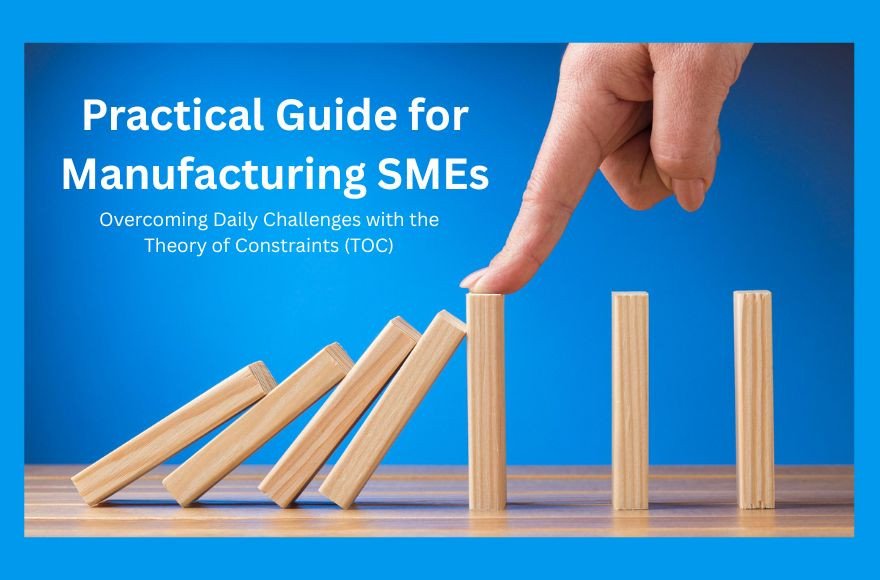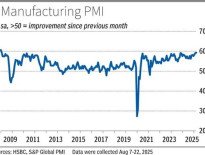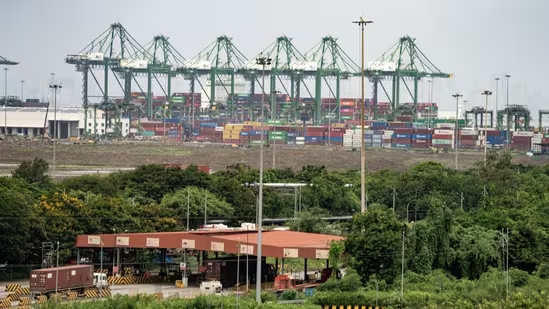Share

Imran Shaikh
Founder, Profound Consulting
The Problem: A State of Constant Firefighting
Indian manufacturing SMEs are the engine of our economy, but they often operate in a high-pressure environment, battling a trio of interconnected challenges:
- Financial Squeeze: A critical lack of cash flow, worsened by delayed payments and difficulty securing loans, starves the business of essential working capital.
- Operational Chaos: Factory floors are defined by “firefighting.” Symptoms include massive Work-in-Progress (WIP) inventory, unpredictable delivery times, and constant expediting of “urgent” orders. The root cause is an unidentified bottleneck—a single process dictating the pace of the entire operation.
- Intense Market Pressure: Fierce competition from larger players and cheap imports forces SMEs into price wars, squeezing already thin profit margins.
The Solution: A Paradigm Shift with the Theory of Constraints (TOC)
Instead of attempting to fix everything at once, the Theory of Constraints offers a powerful, low-cost approach. It states that every system is limited by a single constraint (the bottleneck). By focusing all improvement efforts on that one point, you can unlock a disproportionate increase in performance across the entire business.
The Core Application: Managing the Bottleneck
This simple yet profound production method brings immediate order to the factory floor.
- Identify the Bottleneck: Walk the floor and find the machine or process with the largest pile of inventory waiting in front of it. This is your constraint.
- Implement Drum-Buffer-Rope (DBR):
- Drum: The bottleneck becomes the “drumbeat,” setting the pace for the entire factory. No process should work faster than the bottleneck.
- Buffer: A small, strategic inventory of work is placed right before the bottleneck. This protects it from upstream delays, ensuring it never starves for work.
- Rope: A signal mechanism is used to release new raw material into the system only when a finished unit leaves the bottleneck. This “pulls” work through the factory at the correct pace, preventing the massive build-up of WIP inventory.
Transformative Results: From Firefighting to Control and Profitability
Implementing this focused approach yields powerful, cascading benefits that solve the core challenges:
- Operational Stability: Daily firefighting disappears. By managing the bottleneck, the entire production system becomes smooth, predictable, and reliable. Lead times shorten dramatically.
- Financial Liberation: Reducing the massive WIP inventory directly converts dead assets stuck on the shop floor into liquid cash. This immediately eases the financial squeeze. Furthermore, by shipping more products with the same resources (increased throughput), revenue and profitability improve, reducing dependence on external loans.
- A Decisive Market Advantage: With a reliable system, you no longer need to compete solely on price. You can now compete on speed and delivery.
- Smart Technology Investment: TOC provides a clear guide for spending. Instead of guesswork, you invest capital only to improve the capacity of the current constraint. This ensures every rupee spent delivers the maximum possible return for the entire factory’s output.
The Way Forward
The Theory of Constraints offers a path that is not about spending more money, but about thinking more clearly. By shifting focus from managing costs everywhere to managing the single point of constraint, manufacturing SMEs can unlock tremendous hidden capacity and transform from struggling workshops into agile, profitable, and world-class companies.
Article by:
Imran Shaikh
Founder, Profound Consulting
Email: imran.shaikh@profoundconsulting.in
Web: www.profoundconsulting.in
Linkedin: imranhshaikh-thoughtleader






